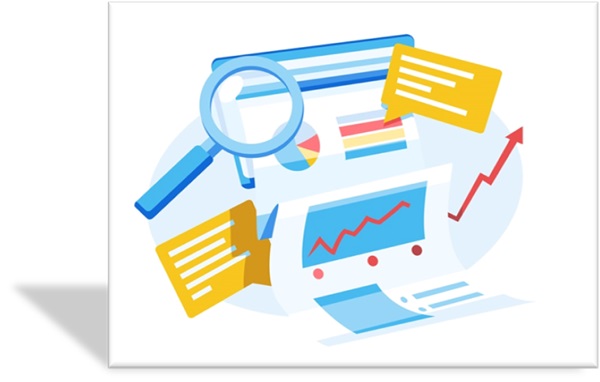
A Business Reporting System empowers businesses to navigate through vast amounts of data swiftly, extracting invaluable insights. It seamlessly connects vital business systems such as sales, accounting, storage, transport, logistics, and HR systems. This integration ensures that even data not directly linked to daily operations, like market insights, competitive analysis, legal information, and commodity prices, are readily accessible and usable
When is a business software system useful needed
A Business Reporting System is particularly vital in scenarios where decision-makers need to access comprehensive and accurate information quickly. This includes situations where businesses:
- Require fast and efficient summarization of large volumes of documents.
- Need to integrate data from various departments such as sales, accounting, or HR.
- Want to stay ahead of market trends and make timely decisions that capitalize on emerging opportunities.
- Are preparing reports for a wide audience including management, partners, and customers.


How does it actually work?
The Business Reporting System operates by:
- Collecting and storing data from various sources within the organization.
- Analyzing this raw data to extract meaningful insights.
- Transforming these insights into intelligent business reports that are easy to understand and act upon.
- Integrating with existing systems like sales, accounting, and logistics to pull in relevant data, ensuring all information is up-to-date and comprehensive.
Why does my business need one?
Implementing a Business Reporting System is crucial because:
- It empowers businesses to make well-informed decisions based on robust data analysis, significantly improving strategic planning and operational efficiency.
- It enables companies to quickly navigate through and make sense of vast data sets, facilitating a better understanding of the business landscape and enhancing competitive advantage.
- The system provides vital information not just for daily operations but also for strategic decision-making involving market trends, competitive analysis, and other external factors.
- In an era where data is king, having a system that can efficiently process and report this information is essential for staying competitive and proactive in decision-making processes.

In a Business Reporting System, data typically comes from a variety of internal and external sources within an organization which include:
Internal Systems
- Sales Systems (CRM, Leads, Membership):
Information on customer transactions, sales figures, and revenue. - Accounting Systems:
Financial data such as expenses, profits, and cash flow. - HR Systems:
Employee data, including payroll, performance evaluations, and personal information. - Logistics and Transport Systems:
Details about inventory, shipping, and delivery timelines.


External Data: These are sources outside the company
- Market Information: Trends, size, growth metrics, and industry analyses.
- Competitive Information: Data on competitors, their market share, and their strategies.
- Legal Information: Relevant laws, regulations, and legal precedents that could impact the business.
- Commodity Prices: Information on the costs of raw materials or goods that affect pricing strategies and profit margins.
- These diverse data streams feed into the Business Reporting System, where they are processed and analyzed to create comprehensive reports that aid in strategic decision-making.
For senior management, this means no longer relying on raw data. The Business Reporting System provides deep, actionable insights, enabling well-informed decision-making that can drive a company forward. Whether it’s shaping strategic initiatives or responding to market trends, these insights are indispensable in maintaining a competitive edge.
